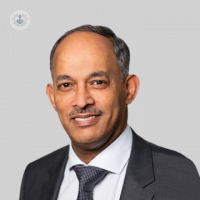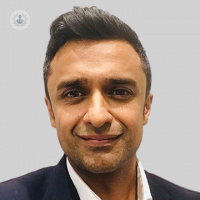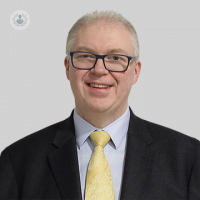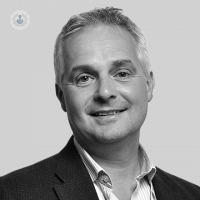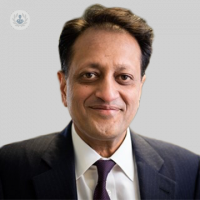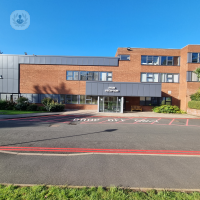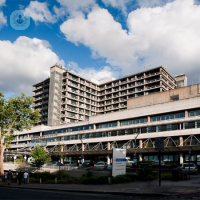When is a liver transplant required?
The liver is a major organ, with the main function of filtering the blood that goes around the body and producing bile that breaks down foods in the small intestine. If the liver becomes so diseased or damaged that it cannot heal, known as liver failure, then it may be necessary for it to be transplanted with a replacement healthy one.
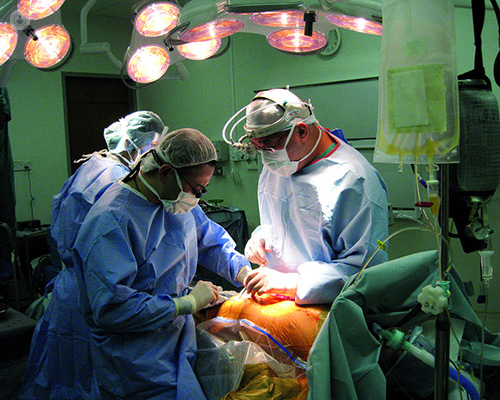
What are the main causes of liver damage?
The main causes of liver damage and cirrhosis include:
- Alcoholic-related liver disease (ARLD)
- Viral hepatitis
- Cirrhosis
- Liver cancer
What are the different types of liver transplant?
Because donor livers are difficult to come by, and because there is a long waiting list of recipients for donor livers, there is a strict assessment of who is suitable for a liver transplant.
A patient is considered a suitable recipient if there lifespan would be shorter without having the transplant, and that there is at least a 50 per cent chance of surviving for five years following transplantation.
The different ways that a liver transplant can be carried out are:
Deceased liver donation
Where the donated liver comes from a person who has recently died and that has a healthy liver.
Living donor transplantation
This form of transplantation takes a section of liver from a living donor and implanted into the existing liver. Because the liver is able to regenerate itself, with the support of the section of healthy liver, the diseased liver will regenerate. The donor’s existing section of healthy liver will also regenerate.
Split donation
Similar to a deceased liver donation, a healthy liver is removed from a recently deceased patient. The liver is then split and donated to two separate patients where it will regenerate into two complete healthy organs.
What is life like after a liver transplantation?
Following liver transplant surgery, the recipient patient should see an almost instant improvement of the symptoms they were experiencing from the diseased liver. Patients will often be able to return to their usual activities within a few months, but complete recovery may take much longer.
Transplant patients need to take immunosuppressant drugs for the rest of their lives to stop the body rejecting the donor liver.
Liver transplant risks
There can be some risks following liver transplant surgery, despite the outlook being good in most cases, with around eight out of ten liver transplant patients going on to live for at least five more years, and many living for more than 20 years.
The main problems with liver transplant surgery include:
- the donated liver being rejected by your body
- the donated liver not functioning at first, meaning another transplant needs to be carried out straight away
- bleeding
- an increased risk of infection
- blood flow problems to and from the liver
- an increased risk of skin cancer
07-30-2013 09-18-2023
Liver transplant
When is a liver transplant required?
The liver is a major organ, with the main function of filtering the blood that goes around the body and producing bile that breaks down foods in the small intestine. If the liver becomes so diseased or damaged that it cannot heal, known as liver failure, then it may be necessary for it to be transplanted with a replacement healthy one.

What are the main causes of liver damage?
The main causes of liver damage and cirrhosis include:
- Alcoholic-related liver disease (ARLD)
- Viral hepatitis
- Cirrhosis
- Liver cancer
What are the different types of liver transplant?
Because donor livers are difficult to come by, and because there is a long waiting list of recipients for donor livers, there is a strict assessment of who is suitable for a liver transplant.
A patient is considered a suitable recipient if there lifespan would be shorter without having the transplant, and that there is at least a 50 per cent chance of surviving for five years following transplantation.
The different ways that a liver transplant can be carried out are:
Deceased liver donation
Where the donated liver comes from a person who has recently died and that has a healthy liver.
Living donor transplantation
This form of transplantation takes a section of liver from a living donor and implanted into the existing liver. Because the liver is able to regenerate itself, with the support of the section of healthy liver, the diseased liver will regenerate. The donor’s existing section of healthy liver will also regenerate.
Split donation
Similar to a deceased liver donation, a healthy liver is removed from a recently deceased patient. The liver is then split and donated to two separate patients where it will regenerate into two complete healthy organs.
What is life like after a liver transplantation?
Following liver transplant surgery, the recipient patient should see an almost instant improvement of the symptoms they were experiencing from the diseased liver. Patients will often be able to return to their usual activities within a few months, but complete recovery may take much longer.
Transplant patients need to take immunosuppressant drugs for the rest of their lives to stop the body rejecting the donor liver.
Liver transplant risks
There can be some risks following liver transplant surgery, despite the outlook being good in most cases, with around eight out of ten liver transplant patients going on to live for at least five more years, and many living for more than 20 years.
The main problems with liver transplant surgery include:
- the donated liver being rejected by your body
- the donated liver not functioning at first, meaning another transplant needs to be carried out straight away
- bleeding
- an increased risk of infection
- blood flow problems to and from the liver
- an increased risk of skin cancer


Can you live a long life with liver disease, and how do hepatologists help?
By Dr Jeremy Cobbold
2025-02-05
Liver disease is a broad term that encompasses a range of conditions affecting the liver, from fatty liver disease and hepatitis to cirrhosis and liver cancer. While liver disease can have serious implications, many individuals can live long and fulfilling lives with proper management and care. Hepatologists—specialists in liver health—play a crucial role in diagnosing, treating, and managing these conditions to optimise outcomes and improve quality of life. See more
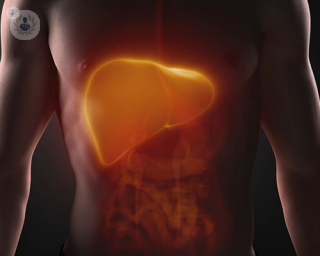

What we should know about liver transplants
By Mr Abdul Rahman Hakeem
2025-02-04
Here to discuss liver transplant surgery in expert detail is renowned consultant in hepatobiliary and liver transplant surgery, Mr Abdul Rahman Hakeem. See more
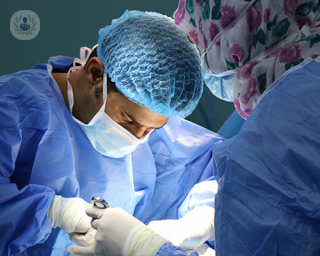

An introduction to chronic liver disease and liver transplantation
By Mr Andreas Prachalias
2025-02-03
Mr Andreas Prachalias, a leading surgeon, explains the symptoms of chronic liver disease, how it is diagnosed and the complexities of liver transplant surgery. See more


Coronavirus information for liver patients
By Professor Patrick Kennedy
2025-02-02
Get reliable information from a leading specialist about what to do if you’re suffering from a liver condition (e.g. liver disease, cirrhosis or hepatitis) or undergoing immunosuppressive treatment during the coronavirus pandemic. Professor Patrick Kennedy, an internationally renowned hepatologist, provides you with a trustworthy starting point for managing your liver condition during this time. See more
Experts in Liver transplant
-
Dr Deepak Joshi
Hepatology (liver specialist)Expert in:
- ERCP
- Cirrhosis
- Liver disease
- Liver transplant
- Primary sclerosing cholangitis (PSC)
- Pancreatitis
-
Mr Andreas Prachalias
SurgeryExpert in:
- Liver transplant
- Liver surgery
- Pancreas surgery
- Gallbladder surgery
- Inguinal hernia
- Laparoscopy
-
Professor Michael A G Heneghan
Hepatology (liver specialist)Expert in:
- Cirrhosis
- Autoimmune hepatitis
- Primary sclerosing cholangitis (PSC)
- Liver cancer
- Liver transplant
- Viral hepatitis
-
Dr Andrew Peter Holt
Hepatology (liver specialist)Expert in:
- Cirrhosis
- Alcoholic liver disease
- Fatty liver
- Viral hepatitis
- Primary biliary cholangitis (PBC)
- Liver transplant
-
Professor Rajiv Jalan
Hepatology (liver specialist)Expert in:
- Liver disease
- Liver biopsy
- Liver function tests
- Liver cancer
- Liver transplant
- Fatty liver
- See all

The Priory Hospital - part of Circle Health Group
The Priory Hospital - part of Circle Health Group
Priory Road, Edgbaston, Birmingham B5 7UG
No existe teléfono en el centro.
By using the telephone number provided by TOP DOCTORS, you automatically agree to let us use your phone number for statistical and commercial purposes. For further information, read our Privacy Policy
Top Doctors

The Royal Free Hospital
The Royal Free Hospital
Pond Street, Hampstead. NW3 2QG
No existe teléfono en el centro.
By using the telephone number provided by TOP DOCTORS, you automatically agree to let us use your phone number for statistical and commercial purposes. For further information, read our Privacy Policy
Top Doctors

OneWelbeck Imaging & Diagnostics Centre
OneWelbeck Imaging & Diagnostics Centre
1 Welbeck St, London, W1G 0AR
No existe teléfono en el centro.
By using the telephone number provided by TOP DOCTORS, you automatically agree to let us use your phone number for statistical and commercial purposes. For further information, read our Privacy Policy
Top Doctors
-
The Priory Hospital - part of Circle Health Group
Priory Road, Edgbaston, Birmingham B5 7UG, EdgbastonExpert in:
- Cancer
- General Surgery
- Orthopaedic surgery
- Thoracic Surgery
- Obstetrics and Gynaecology
- Urology
-
The Royal Free Hospital
Pond Street, Hampstead. NW3 2QG, Central LondonExpert in:
- General Surgery
- Orthopaedic surgery
- Robotic Surgery
- Dermatology
- Obstetrics and Gynaecology
- Paediatrics
-
OneWelbeck Imaging & Diagnostics Centre
1 Welbeck St, London, W1G 0AR, W1G Marylebone LondonExpert in:
- Abdominal ultrasound
- Diagnostic Imaging
- Ultrasound
- Musculoskeletal ultrasound
- Abdominal MRI
- Brain MRI
- See all
- Most viewed diseases, medical tests, and treatments
- Liver cancer
- Respiratory infection
- Immunotherapy
- Alzheimer's disease
- Child nutrition
- Undescended testicle (Cryptorchidism)
- Migraine
- Paediatric rheumatology
- Autoimmune diseases
- Joint pain
